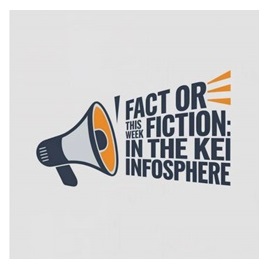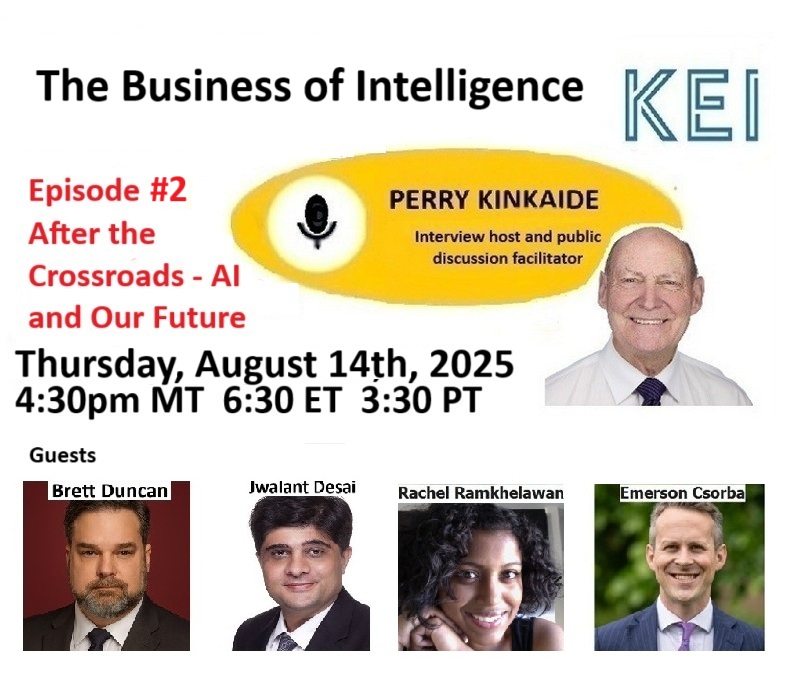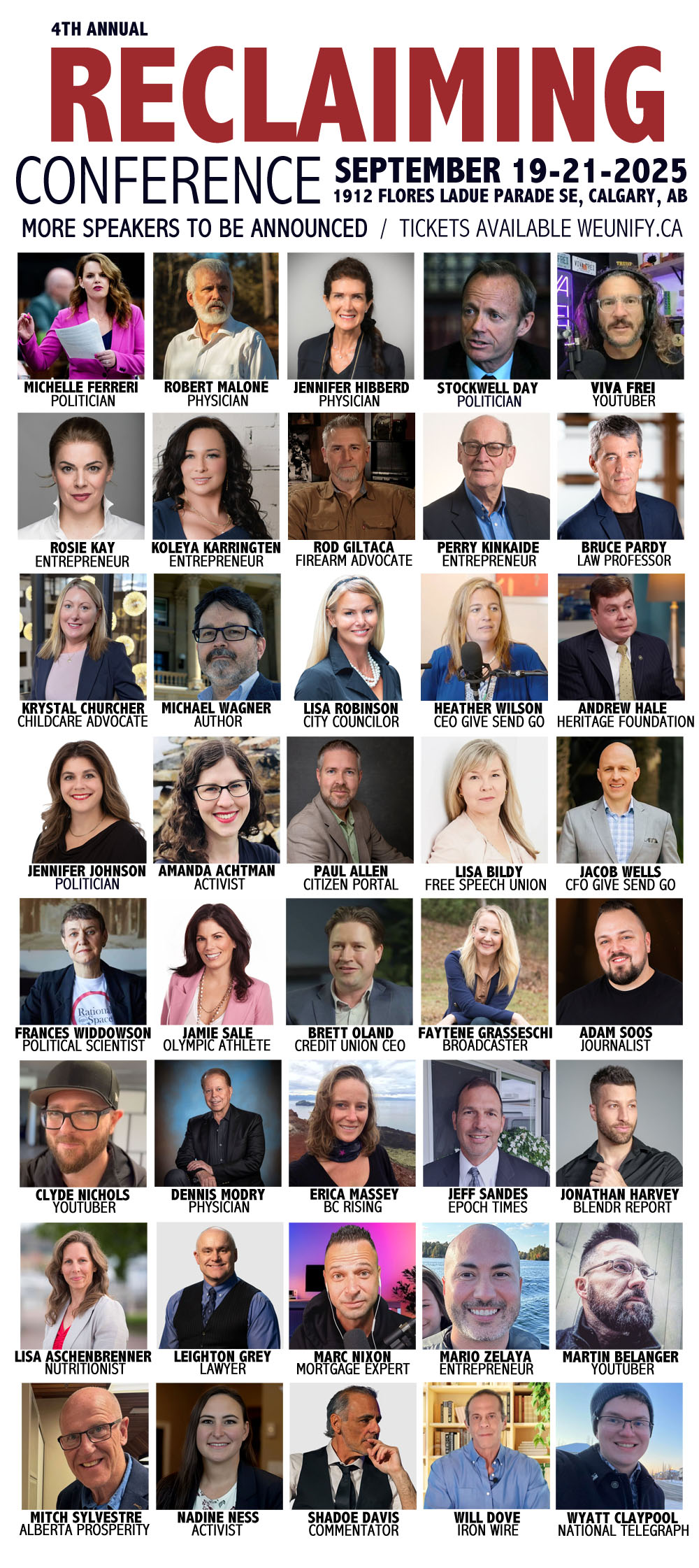|
AI and Our Future: The Business of Intelligence |
DIRECTORY | ||
|
Contributions: An Overview of How Machine Learning is Shaping Our Future |
Action: Help sustain KEI's contributions |
Fact or Fiction?
Capitalism Resilient? |
|
|
Editor - Perry Kinkaide |
AI headlines promise superintelligence, but in business today its impact is more practical—streamlining operations rather than inventing new markets. Our feature, AI in Business: The Efficiency Paradox, asks whether cutting costs alone can fuel lasting growth, or if innovation is essential. The newsletter and associated webinar explore how automation through AI is transforming business and associated business processes and professions like accounting and wealth management, where relational skills and trust are becoming as valuable as technical expertise. The challenge now: turning today’s productivity gains into tomorrow’s engines of value creation. - Editor |
||
|
The Business of Intelligence - The Efficiency Paradox As artificial intelligence advances toward generative capability and headlines warn—or celebrate—the approach of superintelligence, a quieter transformation is already reshaping business fundamentals. AI is no longer just a futuristic tool for breakthrough innovation; it has become a pragmatic instrument for operational efficiency. This is the paradox at the heart of AI’s current phase in corporate strategy: while touted as a path to profitability, most business applications of AI today focus not on growing revenue, but on cutting costs. And while trimming expenses can boost short-term margins, it is not, by itself, a sustainable engine of growth. Efficiency Over Expansion. In banking, finance, logistics, accounting, and wealth management, AI is automating routine tasks—data entry, fraud detection, invoice processing, portfolio rebalancing, compliance checks—delivering measurable productivity gains. According to a 2023 McKinsey Global Survey, 79% of organizations that adopted AI reported cost reductions, while only 23% cited revenue increases directly linked to AI. The World Economic Forum (2024) projects that 44% of workers’ core skills will change by 2027, yet notes that most AI investment still targets back-office automation rather than customer-facing services or creative innovation. Continued below
No need to register. Just Zoom in https://us02web.zoom.us/j/84258596166?pw..
Brett Duncan - has spent over two decades working at the intersection of technology, business strategy, and public sector consulting—helping organizations adopt innovative solutions to drive efficiency and growth. His experience spans IT staffing, software solutions, and emerging technologies, including AI applications in both government and enterprise. He has worked with clients to implement digitization, automation, and analytics that improve service delivery while controlling costs—challenges very similar to those we see today in finance, accounting, and small business operations. Duncan is looking forward to exploring how AI can be more than just a cost-saving tool—how it can create real value, new opportunities, and a competitive edge when paired with the human insight that technology can’t replace. Jwalant Desai – is a global business leader with 20+ years of experience in technology, management, and venture capital across India, USA, Singapore, Cambodia, and Canada. Holding an MBA joint degree from Singapore and the USA, he has led APAC IT services in Singapore and advised the Cambodian government on digital economy policy. Now based in Edmonton, he mentors startups at Edmonton Unlimited, drawing on expertise in AI, blockchain, healthcare IT, and business development. A passionate “management nerd,” he combines international experience, strategic insight, and a commitment to social impact with an enduring curiosity for innovation, politics, and global affairs. Rachel Amkkhelawan – is a Project Manager thriving at the intersection of innovation, strategy, and execution. A STEM software editor in startups or steering cross-functional teams for shipping AI-driven learning tools that stick. With 6+ years in SaaS, AI, and deep tech, she’s built solutions that solve real problems, rallying crews—engineering, UX, marketing, and SMEs—to deliver impact fast. Ready to drive growth and lead with vision wherever the next challenge takes her. Emerson Csorba - is a business executive in the financial services industry focused on deep technology, serving as Vice President of Audacity Investments. Prior to this, he worked in renewable energy and helped modernize Ditchley, a leading geopolitics convening body, taking the organization from little funding initially to over £70m in funding over five years. Emerson has developed extensive people networks across the UK, the US, Canada, Germany, Japan and the Middle East. Alongside this work, he completed a PhD in Theology at Oxford University. Before this, he pursued entrepreneurship through his own consultancy. Emerson’s unique skill – honed over the last decade – is in helping organizations and people to specify, renew and execute on their missions, by mobilizing people and networks. Continued from above The pattern is clear: AI is being deployed first and foremost to improve internal operations, not to drive market expansion, new product development, or R&D. That’s unsurprising given uncertainties around AI governance, talent shortages, and public trust—but it raises a strategic question: Can an economy become more profitable merely by saving, without selling more or creating new value? AI and the Illusion of Profit. As businesses reduce headcounts or defer hiring thanks to AI-powered automation, early adopters see bottom-line gains. But economists warn this is not the same as innovation-led growth. Harvard Business School’s Karim Lakhani puts it bluntly: “You can’t shrink your way to prosperity.” True profitability comes from new offerings, new markets, and fresh ways of solving customer problems—not just from doing old tasks more cheaply. For accounting and wealth management in particular, the shift is profound. AI now handles financial reporting, tax preparation, compliance monitoring, portfolio optimization, and market analysis—tasks once requiring hours of human labor. This levels the knowledge playing field: technical expertise is no longer the sole differentiator. To remain competitive, professionals must deepen relational skills—building trust, interpreting complex results, and providing strategic guidance that technology cannot replicate. Where AI Works Best Today. Insights from the Business of Intelligence: AI in Corporate Strategy and Finance panel show five high-value areas for small enterprises: 1. Customer service – Chatbots and virtual assistants shorten wait times and operate 24/7. 2. Accounting – Automated invoicing, payroll, tax prep, and financial analysis. 3. Marketing – Predictive analytics for targeted offers and higher conversion rates. 4. Operations – AI-driven forecasting improves inventory and staffing. 5. Professional services – Accountants, wealth managers, and consultants use AI to deepen client insights. These are practical, fast-payback applications—especially where resources are tight. The Competitive Edge in a Knowledge-Rich Economy. As AI makes advanced analytics and market insights universally accessible, competitive advantage will depend less on what you know and more on how you apply it. Businesses that combine AI-driven intelligence with strong human relationships—personalized service, empathy, and credibility—will be best positioned to retain customers and command loyalty. In the near term, the most profitable AI deployments will likely emerge where cost savings directly translate into competitive advantage: faster loan approvals, more accurate risk models, or hyper-personalized client outreach. Over the longer term, AI will open the door to entirely new services, products, and markets—if businesses invest now in both the technology and the human capital to use it creatively.
For business leaders and professionals: • Start with efficiency gains—automation of repetitive processes offers the fastest payback • Invest in data discipline—quality data will underpin future AI-driven revenue • Strengthen human skills—empathy, trust, and judgment will remain irreplaceable. Today, most businesses are adopting AI as a productivity engine. For grow and long term success, AI must be a profit engine—looking beyond saving money and focus on creating new value. Making a difference in Canada's future - the speakers and our friends are citizens making a difference in artificial intelligence, community services, health and education, agriculture and finance, STEM too, with a particular focus on our youth as future leaders. YOU ARE INVITED. The Reclaiming Conference this year https://www.weunify.ca brings together like-minded friends who are concerned about our shared future. Join us - a solution based conference focusing our attention on actionable ideas which are accessible to everyone so we can make a real difference. Save the date from Sep 19-21 this Fall as we are assembling citizens to discuss the Future of Leadership at the BMO Centre in Calgary, Alberta. Exhibition
|






